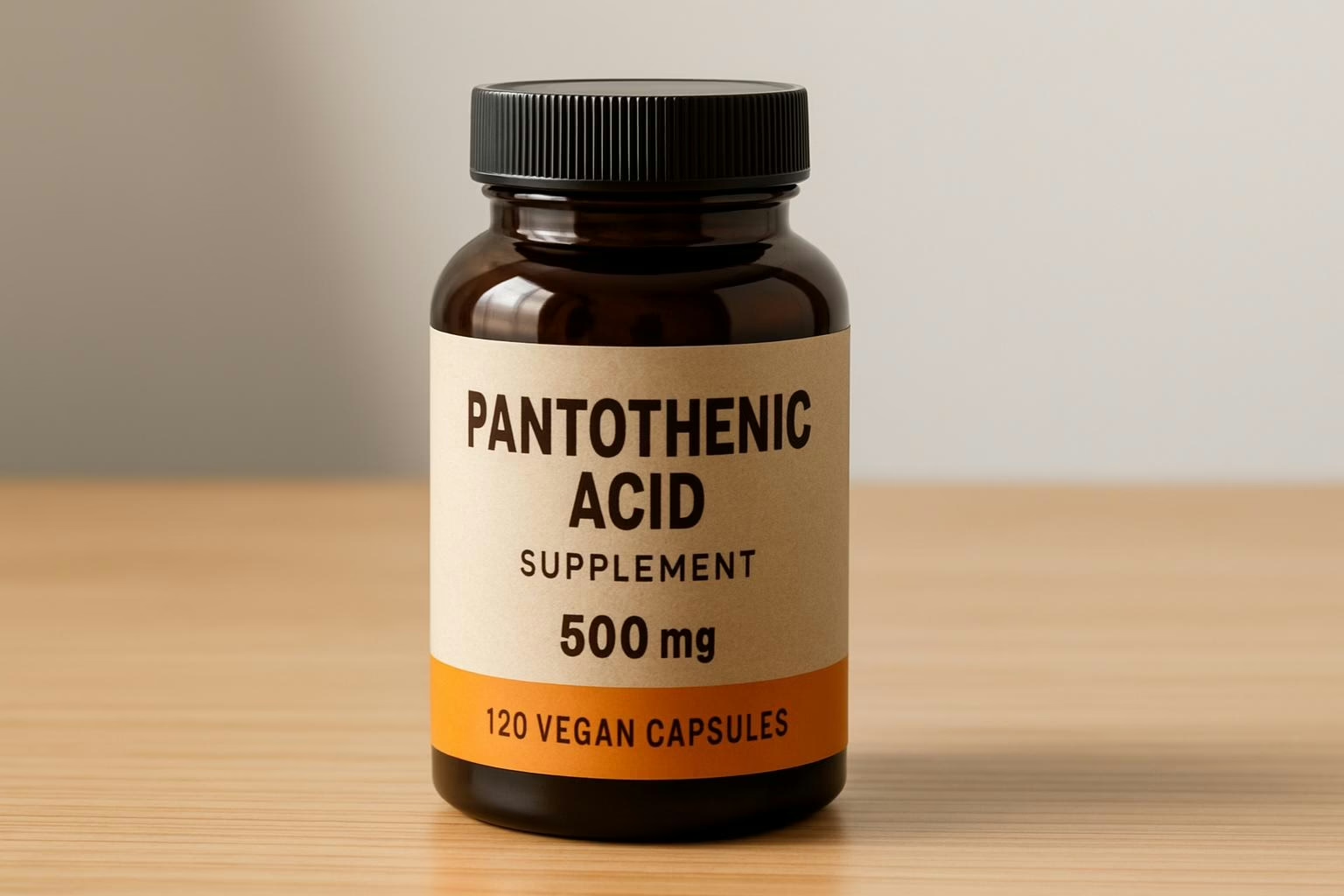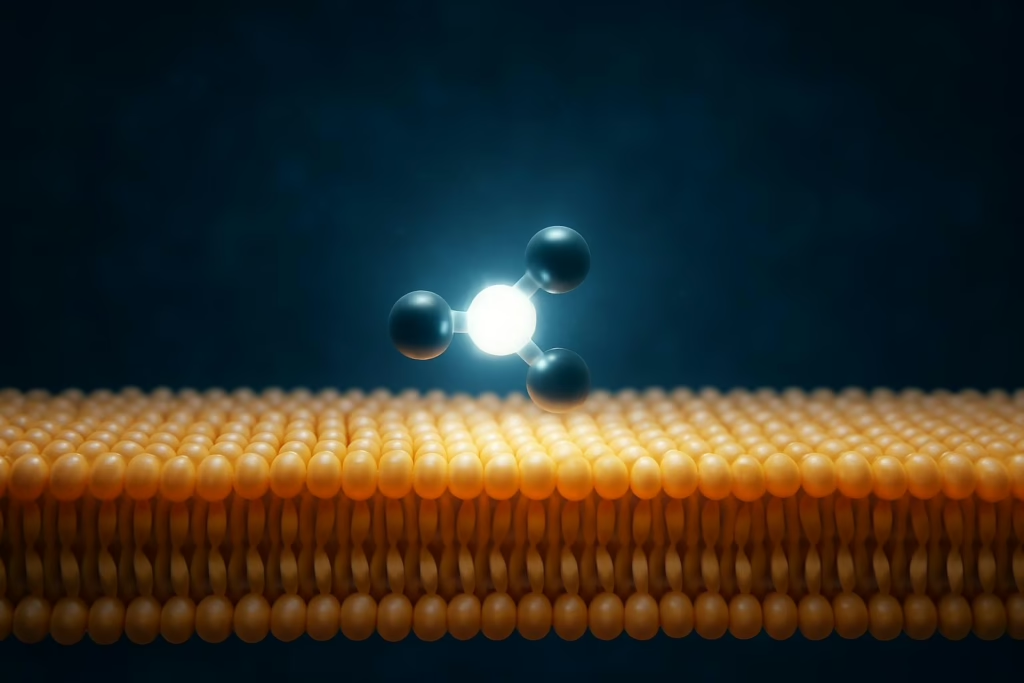
Pantothenic Acid Or Vitamin B5 And Fatigue
Pantothenic acid is considered to be essential in maintaining healthy energy levels. This is because vitamin B5 or pantothenic acid supports many different processes that are vital in maintaining a healthy metabolism.
Pantothenic acid is found in many different foods such as eggs, nuts and various vegetables. Our recommended RDA or suggested intake of pantothenic acid is around 5mg. Some foods very abundant in vitamin B include liver 8mg per 100 grams and broad beans at around 5mg per 100 grams. Many highly refined foods are devoid of vitamin B5 which may contribute to mild deficiencies. Food processing and cooking does mildly reduce the amounts of this vitamin in our food.
A deficiency in vitamin B5 or pantothenic acid could lead to reduced growth, anaemia and nervous system issues. Pantothenic acid is required in the breakdown of carbs and fats to produce energy. There is a lot of research which indicates that vitamin B5 or pantothenic acid supports healthy respiration or ATP production rates.
Vitamin B5 is also needed in the adrenal glands and supports natural steroid production within the body. Pantothenic acid is also needed to make the neurotransmitter acetylcholine which supports healthy nervous system functioning. Other studies show that pantothenic acid may indirectly influence glutathione production which could assist with fatigue reduction especially within the muscles.
The evidence that vitamin B5 or pantothenic acid supports healthy energy levels and the prevention of fatigue will be considered here to show why you should ensure you consume enough of this vitamin each day.

Pantothenic Acid
Pantothenic acid is a B vitamin and is specifically called vitamin B5. This vitamin was originally isolated as a growth factor. Vitamin B5 is essential in sustaining life. Humans must consume this vitamin whereas other lifeforms are able to naturally produce pantothenic acid. Pantothenic acid is a water soluble vitamin. This means Vitamin B5 must be consumed with water in order to be correctly absorbed by the digestive system.
The B vitamins have a role in energy production and vitamin B5 or pantothenic acid is no different. Vitamin B5 or pantothenic acid plays a really crucial role in the production of ATP or energy from our basic inputs such as carbs and fats. Pantothenic acid is specifically used in the citric acid cycle and in fatty acid synthesis pathways. These are important pathways in maintaining healthy energy levels within the body. Pantothenic acid directly modulates mitochondrial energy production in a concentration dependent manner.
Some sufferers of neurodegenerative diseases such as Alzheimer’s or Huntington’s have very significant reductions in vitamin B5. This thought to be largely because of how important this vitamin is in maintaining and producing myelin which surrounds nerve cells. Pantothenic acid is also required to make the neurotransmitter acetylcholine.
Other researchers suggest that pantothenic acid could reduce risks of cardiovascular disease. One study highlighted a noticeable increase in an oxidative stress or inflammatory marker called CRP with lower pantothenic acid. Improvements in amounts of systemic pantothenic acid could influence antioxidant levels and reduce risks of excessive inflammation. Inflammation and cardiovascular disease risk are of course heavily linked with inflammation being a cause of atherosclerosis. Studies have linked pantothenic acid to reductions in inflammatory arthritis too.
This all shows that vitamin B5 is involved throughout the body in many important processes and especially in energy production.

Does Pantothenic Acid Support Our Energy Levels
Research shows that pantothenic acid does have a very important role in preventing fatigue with vitamin B5 deficiency being linked to severe fatigue and muscle weakness. Other symptoms of a deficiency may include irritability and unsteadiness which are linked with severe fatigue.
This will be because of how important pantothenic acid is in supporting the ATP energy production cycle from basic input molecules through mitochondrial coenzyme A. This is the active molecule of pantothenic acid or vitamin B5. As a result many natural energy drinks and supplements contain pantothenic acid to support cognitive functioning. If you are fatigued or with low energy you are not able to be at the heights of your creative and physical abilities.
Research has found that supplementation with pantothenic acid or vitamin B5 could possibly reduce fatigue. When deficient in pantothenic acid or vitamin B5 current research suggests that you may be more prone to early fatigue and exhaustion.
One particular study found that taking 2 grams of pantothenic acid a day during a two week period improved athletic ability in distance runners. Specifically there were noticeable improvements in total oxygen usage. The runners also experienced less lactic acid build up. Lactic acid causes muscle damage and tiredness or fatigue during exercise while oxygen supports healthy energy production from respiration during exercise.
Other research suggests that vitamin B5 could be implicated in heart muscle dysfunction and failure. This could be because of fatigue causing lactic acid build up as the heart muscle is constantly beating. Interestingly heart tissues seem to have one of the highest concentrations of this vitamin.
These results are suggestive of a higher metabolic efficiency or improved energy production and really demonstrate how pantothenic acid could be preventative of fatigue.

Pantothenic Acid And Glutathione
Researchers have also noticed that pantothenic acid is able to support improvements in glutathione levels. Glutathione the standalone antioxidant makes a complex with glutathione peroxidase and needs the amino acid cysteine to be produced by the body.
You could read more about cysteine including some cysteine rich foods and how this the amino acid influences our wellbeing here.
Interestingly pantothenic acid amounts may indirectly influence the metabolism of amino acids such as cysteine. This may occur through the active pantothenic acid molecule known as CoA. Lower levels of CoA may deplete levels of cysteine. When the body has the right amounts of pantothenic acid there is also thought to be an increase in glutathione levels. This is as a result of improvements in ATP or useable energy as produced by our mitochondria.
Glutathione is one of the most powerful antioxidants within the body and may also help muscles to ward off fatigue causing muscle damage. Various studies have shown that higher levels of glutathione are able to support reductions in fatigue especially during exercise. This has been indicated to be because of reductions in muscle acidification from lactic acid and also improvements in fat metabolism within our skeletal muscles.
This could be another means as to how pantothenic acid or vitamin B5 may support reductions in fatigue. This is outside of direct increases in ATP or energy production.
Overall the research strongly shows that pantothenic acid or vitamin B5 is supportive of healthy energy production which could possibly reduce feelings of fatigue. This is especially true during exercise such as distance running.

Summary
Pantothenic acid is involved in the metabolism of carbohydrates and fats which support the reduction of fatigue. Vitamin B5 or pantothenic acid encourages healthy ATP or energy production within the body. Pantothenic acid has a specific and important role within the citric acid cycle. Pantothenic acid is known to be essential in sustaining or supporting life.
You could find high amounts of vitamin B5 or pantothenic in foods such as liver or broad beans. Various foods contain this water soluble vitamin and our suggested intake is about 5mg a day. Deficiencies in vitamin B5 are able to cause reductions in growth and also severe muscle fatigue.
There are also links between pantothenic acid and neurodegenerative diseases such as Alzheimer’s disease or Huntington’s. This is possibly because of how important vitamin B5 is in supporting the production of myelin which surrounds nerve cells. Pantothenic acid is also needed to make acetylcholine which is an important neurotransmitter.
Many studies support the use of pantothenic acid as possibly having an ability to support the reduction of fatigue. This is also apparent during exercise where one study showed that vitamin B5 supplementation during a 2 week period was able to improve athletic ability in runners and support reductions in lactic acid build up. Deficiencies in pantothenic acid could make you more prone to early fatigue and exhaustion. The heart also contains a lot of pantothenic acid relative to the rest of the body and vitamin B5 deficiencies could contribute to fatigue related heart failure or disorders.
Overall the research suggests that pantothenic acid could promote improvements in energy production and reduce feelings of fatigue.
You can read more interesting articles below.





